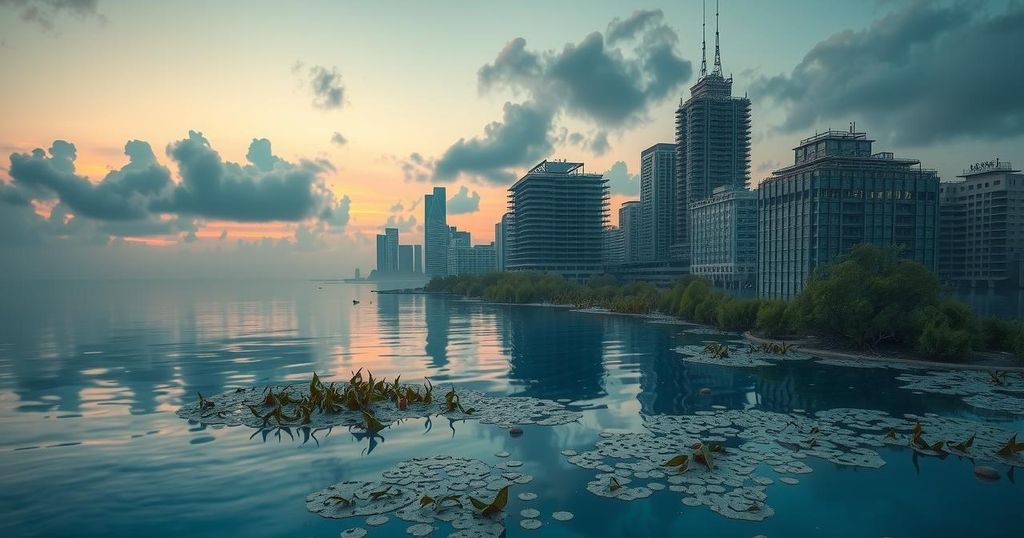Banjul, The Gambia, is at risk of becoming submerged due to rising sea levels driven by climate change. Severe flooding in 2022 affected over 50,000 residents, revealing the city’s vulnerability. As local employment dwindles, many inhabitants are contemplating migration. However, initiatives aimed at bolstering the city’s defenses against climate impacts offer a potential solution.
A city in West Africa faces the threat of becoming an underwater ghost town as rising sea levels pose a severe risk to its future. Since the onset of industrialism in the 1800s, human activity has accelerated climate change, resulting in increasing temperatures and rising seas globally. Banjul, The Gambia, is among the affected cities, with consequences already evident from a torrential storm in July 2022, impacting over 50,000 residents with significant flash flooding.
The significance of rising sea levels for Banjul cannot be overstated. According to James F.P Gomez, Minister of Fisheries, Water Resources, and National Assembly Matters, a mere one-meter rise in sea levels could submerge Greater Banjul entirely. Historically a low-lying city, Banjul’s vulnerability is heightened by both climate change and unsustainable commercial sand mining, leading many residents, like Aminata Jatta, to voice their despair over the deterioration of their livelihoods.
The population of Banjul has been steadily declining; from 45,000 in 1983 to an estimated 26,000 in 2024. This exodus is fueled by diminishing job opportunities and increasing threats from climate change, with a recent study indicating that 64% of current residents are considering leaving by 2050. Such statistics reflect a deepening crisis within the city.
However, initiatives to combat these challenges offer a glimmer of hope. The Gambia received $12 million from the Global Environment Facility in November 2024 for the Climate-Resilient Banjul project aimed at transformative change. Additionally, the EU-funded City-link Ostend Banjul project focuses on planting coconut trees and coastal vegetation, enhancing the city’s natural defenses against rising seas.
Banjul is not isolated in its struggles; other regions like British Columbia, Canada, also face significant climate-related risks. Collective action to reduce reliance on fossil fuels and transition to renewable energy sources is crucial. Individuals can contribute to this cause and help combat climate change effectively.
In summary, Banjul, The Gambia, is under severe threat from rising sea levels due to climate change, with many residents already displaced. Government and international efforts are underway to mitigate these impacts and restore Banjul’s natural defenses. Nonetheless, the ongoing crisis highlights the urgent need for broader climate action on a global scale to secure the future of vulnerable cities worldwide.
Original Source: www.thecooldown.com






